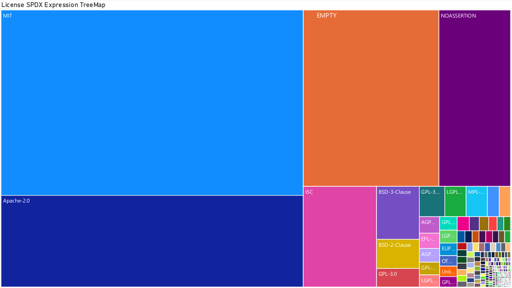No JS, No CSS, No HTML: online "clubs" celebrate plainer websites
-
The revived No JS Club celebrates websites that don't use Javascript, the powerful but sometimes overused code that's been bloating the web and crashing tabs since 1995. The No CSS Club goes a step further and forbids even a scrap of styling beyond the browser defaults. And there is even the No HTML Club, where you're not even allowed to use HTML. Plain text websites!
The modern web is the pure incarnation of evil. When Satan has a 1v1 with his manager, he confers with the modern web. If Satan is Sauron, then the modern web is Melkor [1]. Every horror that you can imagine is because of the modern web. Modern web is not an existential risk (X-risk), but is an astronomic suffering risk (S-risk) [2]. It is the duty of each and every man, woman, and child to revolt against it. If you're not working on returning civilization to ooga-booga, you're a bad person.
A compromise with the clubs is called for. A hypertext brutalism that uses the raw materials of the web to functional, honest ends while allowing web technologies to support clarity, legibility and accessibility. Compare this notion to the web brutalism of recent times, which started off in similar vein but soon became a self-subverting aesthetic: sites using 2.4MB frameworks to add text-shadow: 40px 40px 0px hotpink to 400kb Helvetica webfonts that were already on your computer.
I also like the idea of implementing "hypotext" as an inversion of hypertext. This would somehow avoid the failure modes of extending the structure of text by failing in other ways that are more fun. But I'm in two minds about whether that would be just a toy (e.g. references banished to metadata, i.e. footnotes are the hypertext) or something more conceptual that uses references to collapse the structure of text rather than extend it (e.g. links are includes and going near them spaghettifies your brain). The term is already in use in a structuralist sense, which is to say there are 2 million words of French I have to read first if I want to get away with any of this.
Republished Under Creative Commons Terms.
Boing Boing Original Article.That is just stupid. How about a slighly more complex markdown.
What I really want is a P2P archive of all the relevant news articles of the last decades in markdown like in firefox "reader view". And some super advanced LLM powered text compression so you can easily store a copy of 20% of them on your PC to share P2P.
Much of the information on the internet could vanish within months if we face some global economic crisis.
-
I host my own website, and I decided to rewrite the JS portions in React, in order to learn the framework. Boy was it a learning experience: To do the same thing required 2-4 times the amount of code—and that’s just in the scripts, let alone the all the bloat from the packages and the bundler.
I know this is a bit more radical than cutting out frameworks, but working with the JS ecosystem was such a pain, largely because there’s you need to piece together different software to make a stack work, which may or may not go together well. And since your stack is likely unique, good luck getting help on your problems. It made me miss Rust (albeit most languages do)—in Rust, you have Cargo for everything, and it’s beautiful. Rust has its own difficulties, but they actually feel surmountable compared to the dependency hell of JS.
The dependency hell of JS is caused by React. It's an ironic turn because node gained popularity in part because it was one of the first to have a coupled package manager with a massive public contribution model, full of a billion packages that follow the unix philosophy of "everything should do only one thing, and do it well" Dependency hell would disappear if people stopped popularizing competing swiss army knives. It's made worse by people trying to mash these swiss army knives together just to improve portfolio.
We've gotten to the point where you aren't considered a real professional unless you start even the smallest projects with maximum technical debt.
It should never be impressive that you used a tool. If the tool made programming it easier then it's not a mental feat. If the tool made programming it harder, then people should think you are kind of slow for using a tool that made development harder. This is why brag culture over what tools are used makes no sense. Just use tools that make life easier. If it doesn't make life easier, stop using it.
-
I do wonder if we're going to see some websites popping up that kind of hit the reset button on social media and go back to smaller communities of folks with something in common.
I kind of miss the days of actually having online conversations with folks you know are real people (not bots), that aren't trying to be an influencer, or get famous, or some how many money off your interactions.
I know some some communities using WhatsApp. Too difficult to get in. I miss the old days of irc and small php forums.
-
I'll say one thing for the No CSS philosophy - at least it eliminates light-colored text on a light-colored background using the thinnest possible font, which is probably the stupidest stylistic trend since the web began.
In the future there will be media queries for how old the reader is.
-
In the future there will be media queries for how old the reader is.
Will teenagers with shitty vision be able to get away with lying about their age or will there be verification?
-
No HTML should rather do all-Commonmark instead, imo. Background color and text width & stuff should not be your (the creators) business but my (the users) business only. But some basic styling is nice.
it's a shame commonmark stalled and then markdown variants proliferated again because of that

-
The revived No JS Club celebrates websites that don't use Javascript, the powerful but sometimes overused code that's been bloating the web and crashing tabs since 1995. The No CSS Club goes a step further and forbids even a scrap of styling beyond the browser defaults. And there is even the No HTML Club, where you're not even allowed to use HTML. Plain text websites!
The modern web is the pure incarnation of evil. When Satan has a 1v1 with his manager, he confers with the modern web. If Satan is Sauron, then the modern web is Melkor [1]. Every horror that you can imagine is because of the modern web. Modern web is not an existential risk (X-risk), but is an astronomic suffering risk (S-risk) [2]. It is the duty of each and every man, woman, and child to revolt against it. If you're not working on returning civilization to ooga-booga, you're a bad person.
A compromise with the clubs is called for. A hypertext brutalism that uses the raw materials of the web to functional, honest ends while allowing web technologies to support clarity, legibility and accessibility. Compare this notion to the web brutalism of recent times, which started off in similar vein but soon became a self-subverting aesthetic: sites using 2.4MB frameworks to add text-shadow: 40px 40px 0px hotpink to 400kb Helvetica webfonts that were already on your computer.
I also like the idea of implementing "hypotext" as an inversion of hypertext. This would somehow avoid the failure modes of extending the structure of text by failing in other ways that are more fun. But I'm in two minds about whether that would be just a toy (e.g. references banished to metadata, i.e. footnotes are the hypertext) or something more conceptual that uses references to collapse the structure of text rather than extend it (e.g. links are includes and going near them spaghettifies your brain). The term is already in use in a structuralist sense, which is to say there are 2 million words of French I have to read first if I want to get away with any of this.
Republished Under Creative Commons Terms.
Boing Boing Original Article.I guess all that's left is to form a no-utf club.
-
The dependency hell of JS is caused by React. It's an ironic turn because node gained popularity in part because it was one of the first to have a coupled package manager with a massive public contribution model, full of a billion packages that follow the unix philosophy of "everything should do only one thing, and do it well" Dependency hell would disappear if people stopped popularizing competing swiss army knives. It's made worse by people trying to mash these swiss army knives together just to improve portfolio.
We've gotten to the point where you aren't considered a real professional unless you start even the smallest projects with maximum technical debt.
It should never be impressive that you used a tool. If the tool made programming it easier then it's not a mental feat. If the tool made programming it harder, then people should think you are kind of slow for using a tool that made development harder. This is why brag culture over what tools are used makes no sense. Just use tools that make life easier. If it doesn't make life easier, stop using it.
We’ve gotten to the point where you aren’t considered a real professional unless you start even the smallest projects with maximum technical debt.
They're just following the example laid out by the venture capital model, really.
-
Oh neat! I'm working on a forum that doesn't use any javascript
phpBBB??
-
WORDS???? The cheek of it!
Thoughts in a contiguous sequence??!!? What utter bloat! Why even have a past or future when a pure consciousness need only experience the horizon of an infinite present.
-
Just out of curiosity what percentage of people here are using Voyager as their Lemmy client?
::: spoiler Spoiler
Voyager wouldn’t work without JavaScript… shhh don’t tell anyone
:::Ththat's different.. you take it back!!
-
What we need is a subset of modern web, without any bloat, especially JS frameworks.
A lot of websites can be static HTML + CSS.
Maybe a little JS, as a treat?
It's fun for hiding little easter eggs.
-
We have that, it’s called Gemini and is accessible with Lagrange
And Offpunk.
-
Thoughts in a contiguous sequence??!!? What utter bloat! Why even have a past or future when a pure consciousness need only experience the horizon of an infinite present.
Ⰰ

 ╛⊄ⴓ⬤⡥
╛⊄ⴓ⬤⡥ ⶠ≣ℙ⡥≾
ⶠ≣ℙ⡥≾ ⡳ⴖ≋ℒ⊴⎟⼑⋪‡⛘⩎??!!? ⓿▆╟❵! ▧⟺
⡳ⴖ≋ℒ⊴⎟⼑⋪‡⛘⩎??!!? ⓿▆╟❵! ▧⟺ ∎Ⳗ⭥♟↠⤢⮪ⱎ⧏ⲇ⿁⌔⋓!!
∎Ⳗ⭥♟↠⤢⮪ⱎ⧏ⲇ⿁⌔⋓!! -
Ththat's different.. you take it back!!
There are so many people here that hate cloud based services. And the same people also hate JavaScript. Like you realize if your app was just static JavaScript files, you could literally just download the entire site to your computer and run it? Why is JavaScript the enemy?
JavaScript isn’t the enemy. The enshitification of technology is the enemy.
-
The revived No JS Club celebrates websites that don't use Javascript, the powerful but sometimes overused code that's been bloating the web and crashing tabs since 1995. The No CSS Club goes a step further and forbids even a scrap of styling beyond the browser defaults. And there is even the No HTML Club, where you're not even allowed to use HTML. Plain text websites!
The modern web is the pure incarnation of evil. When Satan has a 1v1 with his manager, he confers with the modern web. If Satan is Sauron, then the modern web is Melkor [1]. Every horror that you can imagine is because of the modern web. Modern web is not an existential risk (X-risk), but is an astronomic suffering risk (S-risk) [2]. It is the duty of each and every man, woman, and child to revolt against it. If you're not working on returning civilization to ooga-booga, you're a bad person.
A compromise with the clubs is called for. A hypertext brutalism that uses the raw materials of the web to functional, honest ends while allowing web technologies to support clarity, legibility and accessibility. Compare this notion to the web brutalism of recent times, which started off in similar vein but soon became a self-subverting aesthetic: sites using 2.4MB frameworks to add text-shadow: 40px 40px 0px hotpink to 400kb Helvetica webfonts that were already on your computer.
I also like the idea of implementing "hypotext" as an inversion of hypertext. This would somehow avoid the failure modes of extending the structure of text by failing in other ways that are more fun. But I'm in two minds about whether that would be just a toy (e.g. references banished to metadata, i.e. footnotes are the hypertext) or something more conceptual that uses references to collapse the structure of text rather than extend it (e.g. links are includes and going near them spaghettifies your brain). The term is already in use in a structuralist sense, which is to say there are 2 million words of French I have to read first if I want to get away with any of this.
Republished Under Creative Commons Terms.
Boing Boing Original Article.counterpoint: https://bestestmotherfucking.website/
-
That's almost worse. I don't want to install 5000 NPM packages to generate 2 basic-ass pages.
Use Zola or Hugo then
-
That is made by someone who had a Geocities website, or went 1000% in on MySpace back in the day.
-
The revived No JS Club celebrates websites that don't use Javascript, the powerful but sometimes overused code that's been bloating the web and crashing tabs since 1995. The No CSS Club goes a step further and forbids even a scrap of styling beyond the browser defaults. And there is even the No HTML Club, where you're not even allowed to use HTML. Plain text websites!
The modern web is the pure incarnation of evil. When Satan has a 1v1 with his manager, he confers with the modern web. If Satan is Sauron, then the modern web is Melkor [1]. Every horror that you can imagine is because of the modern web. Modern web is not an existential risk (X-risk), but is an astronomic suffering risk (S-risk) [2]. It is the duty of each and every man, woman, and child to revolt against it. If you're not working on returning civilization to ooga-booga, you're a bad person.
A compromise with the clubs is called for. A hypertext brutalism that uses the raw materials of the web to functional, honest ends while allowing web technologies to support clarity, legibility and accessibility. Compare this notion to the web brutalism of recent times, which started off in similar vein but soon became a self-subverting aesthetic: sites using 2.4MB frameworks to add text-shadow: 40px 40px 0px hotpink to 400kb Helvetica webfonts that were already on your computer.
I also like the idea of implementing "hypotext" as an inversion of hypertext. This would somehow avoid the failure modes of extending the structure of text by failing in other ways that are more fun. But I'm in two minds about whether that would be just a toy (e.g. references banished to metadata, i.e. footnotes are the hypertext) or something more conceptual that uses references to collapse the structure of text rather than extend it (e.g. links are includes and going near them spaghettifies your brain). The term is already in use in a structuralist sense, which is to say there are 2 million words of French I have to read first if I want to get away with any of this.
Republished Under Creative Commons Terms.
Boing Boing Original Article.Just to mention it:
gopher://sdf.org
There is no better place for plain and real content
-
I host my own website, and I decided to rewrite the JS portions in React, in order to learn the framework. Boy was it a learning experience: To do the same thing required 2-4 times the amount of code—and that’s just in the scripts, let alone the all the bloat from the packages and the bundler.
I know this is a bit more radical than cutting out frameworks, but working with the JS ecosystem was such a pain, largely because there’s you need to piece together different software to make a stack work, which may or may not go together well. And since your stack is likely unique, good luck getting help on your problems. It made me miss Rust (albeit most languages do)—in Rust, you have Cargo for everything, and it’s beautiful. Rust has its own difficulties, but they actually feel surmountable compared to the dependency hell of JS.
React is probably overkill for most simple sites. You could still use JavaScript for some cool stuff without needing all the libraries and frameworks








